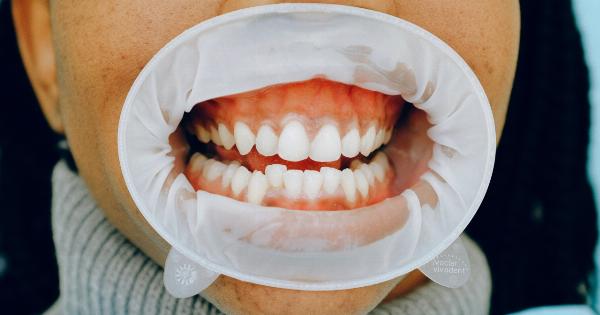Our oral health is an essential part of our overall well-being.
While many of us may think of dental care as separate from our general health, the truth is that the condition of our teeth and gums can serve as indicators of various health issues throughout our bodies. Understanding the connection between oral health and overall wellness can help us take better care of ourselves and seek appropriate medical attention when necessary.
1. Gum Disease and Systemic Inflammation
One of the most significant connections between oral health and overall wellness lies in the link between gum disease and systemic inflammation.
Gum disease, also known as periodontitis, is a chronic inflammatory condition affecting the tissues surrounding the teeth.
The bacteria associated with gum disease can enter the bloodstream, causing inflammation in other areas of the body and potentially contributing to the development or worsening of conditions such as cardiovascular disease, diabetes, and respiratory problems.
2. Tooth Loss and Nutritional Deficiencies
Missing teeth can lead to difficulty chewing and may result in a limited diet that lacks essential nutrients. Individuals with tooth loss may find it challenging to consume a variety of foods, particularly fresh fruits, vegetables, and lean meats.
Consequently, these individuals may be more likely to experience nutritional deficiencies, which can negatively impact their overall health. It is essential to address tooth loss promptly and consider restorative options such as dental implants or dentures to maintain a healthy diet and provide the body with necessary nutrients.
3. Oral Health and Diabetes
Diabetes and oral health have a bidirectional relationship. Studies have shown that individuals with diabetes are more prone to developing gum disease due to their compromised immune systems.
On the other hand, gum disease can also make it difficult to control blood sugar levels in individuals with diabetes. This interplay between diabetes and oral health highlights the importance of regular dental visits and diligent oral hygiene in individuals living with diabetes.
4. Oral Infections and Heart Health
Research has found a potential link between oral infections, particularly gum disease, and heart health.
The bacteria associated with gum disease can enter the bloodstream, causing inflammation and potentially contributing to the development or progression of cardiovascular disease. Maintaining excellent oral hygiene, addressing oral infections promptly, and seeking regular dental care are crucial steps in reducing the risk of heart-related problems.
5. Oral Lesions as Indicators of Overall Health
Oral lesions can serve as valuable indicators of overall health. Certain conditions such as HIV/AIDS, oral cancer, and autoimmune diseases may manifest through oral symptoms.
Lesions, sores, or abnormal patches in the mouth that persist for an extended period should be evaluated by a dentist or healthcare professional to determine the underlying cause and appropriate treatment.
6. Bruxism and Stress
Bruxism, commonly known as teeth grinding or clenching, can be a sign of stress and anxiety. Chronic stress can take a toll on both our mental and physical health, and bruxism is one of the ways our bodies may respond to increased stress levels.
Teeth grinding can lead to tooth wear, jaw pain, headaches, and other complications. Managing stress and seeking professional help when necessary can alleviate bruxism symptoms and improve overall well-being.
7. Acid Reflux and Dental Erosion
Acid reflux, also known as gastroesophageal reflux disease (GERD), can lead to dental erosion.
The stomach acid that regurgitates into the mouth can erode the protective enamel on the teeth, making them more susceptible to cavities, sensitivity, and discoloration. If you suspect you have acid reflux, it is essential to seek medical attention and manage the condition to prevent further dental complications.
8. Dry Mouth and Medications
Several medications, such as those used to treat allergies, high blood pressure, or depression, can cause dry mouth as a side effect.
Saliva plays a crucial role in maintaining oral health by neutralizing acids, washing away food particles, and preventing tooth decay. When the mouth lacks sufficient saliva production, the risk of cavities, gum disease, and oral infections increases. If you experience persistent dry mouth, consult with your healthcare provider to explore suitable alternatives or potential remedies.
9. Pregnancy, Hormonal Changes, and Oral Health
Pregnancy hormones can influence oral health, leading to conditions like pregnancy gingivitis or pregnancy tumors. Increased hormone levels can cause gums to become more sensitive and reactive to plaque, resulting in inflammation and bleeding.
Pregnant individuals should prioritize their oral health and maintain regular dental visits to prevent and address any pregnancy-related oral health issues.
10. Stress and Poor Oral Hygiene
Stress can contribute to poor oral hygiene habits, such as neglecting regular brushing and flossing or opting for unhealthy coping mechanisms like tobacco use or excessive alcohol consumption.
It is crucial to recognize the impact of stress on our oral health and find effective stress management techniques. By maintaining good oral hygiene practices and reducing stress levels, we can protect our teeth and gums while promoting overall wellness.






























